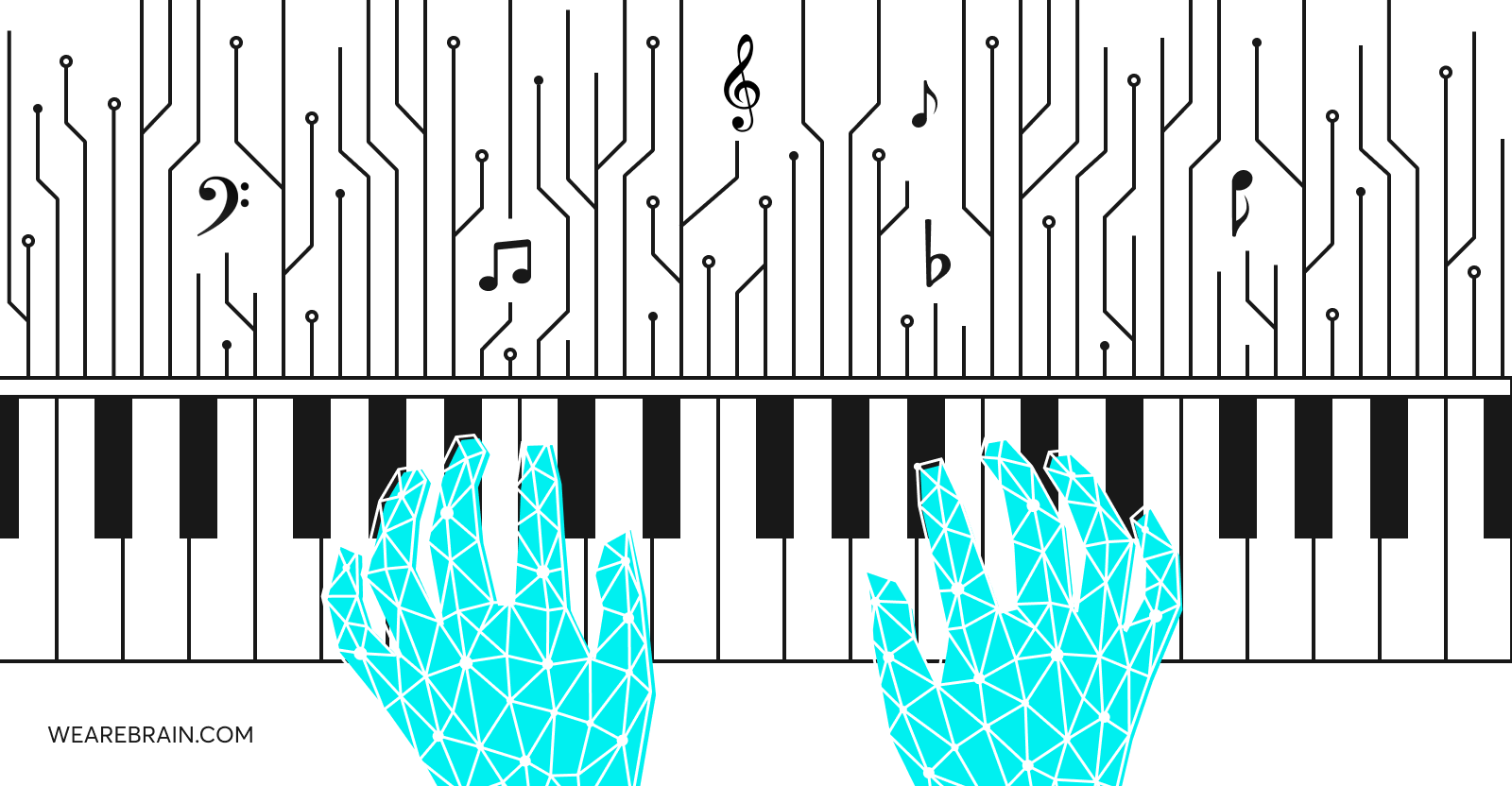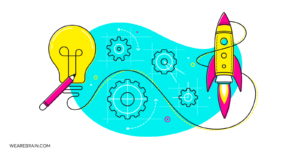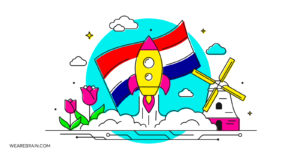AI in music: the rhythmic rise of algorithms

Exploring the frontier where AI meets melody, this article delves into the transformative impact of algorithms on music creation and consumption.
Key takeaways
- Industry Transformation: AI reshapes music composition, production, distribution, and consumption, offering tools for artists and platforms to create, predict hits, and personalize listening experiences.
- Artistic Innovation: Musicians utilize AI for composing, mixing, mastering, and creating novel sounds, expanding creative boundaries and exploring new auditory landscapes.
- Ethical Questions: Raises concerns about copyright ownership, originality, and the potential displacement of human musicians, challenging traditional notions of creativity and authorship.
- Listener Experience: Streaming services employ AI for personalized recommendations, enhancing user engagement but also prompting debates on algorithmic influence over music discovery.
- Future Implications: The role of AI in music sparks discussions on ethics, creativity, and the future of human artistic expression, balancing technological advancement with preserving human creativity.
AI is getting creative
Today, AI is skillfully moonwalking into spaces that have forever been regarded as truly human – creativity. The technology has evolved far from its original intention of automating administrative processes.
With AI-generated images, art, novels, designs, music and videos, we’ve truly burst open a binary Pandora’s Box that will forever change our relationship with the creative process. But is the involvement of AI in music and other traditionally human-centric forms of expression a way to enhance creativity or hinder it?
Let’s talk about how the rhythmic rise of AI in music is striking a new chord in how music is created and experienced.
How AI is being used in the music industry
From composition apps and mastering platforms to song identification tools and highly personalised playlists, AI is changing the way music is composed, produced, distributed, and consumed.
AI is present in every level of music, from creation to consumption. Let’s take a look at how AI is assisting music artists, record labels and streaming platforms, and listeners.
Artists
According to research conducted by music distribution company Ditto Music, 60% of surveyed musicians are already using AI to create music, with 47% saying they will leverage the technology in the future. Here’s why:
Music composition
AI-generated music through composition apps such as Magenta and Amper is becoming increasingly popular among artists. These applications use deep learning algorithms that analyse existing music to learn popular patterns and create new musical compositions based on the style and preferences of the artist. AI algorithms are now able to generate melodies and harmonies – and even lyrics – to give artists a wider range of creative ideas and inspiration.
Music mixing and mastering
The mixing and mastering process has traditionally relied on the skills and creative know-how of music engineers to enhance and optimise the sound quality of a recording. Now, AI-powered mastering tools use specialised algorithms to automate the enhancement of audio tracks, resulting in high-level, radio-ready audio tracks at a fraction of the time – and cost.
Making new sounds
AI is allowing musicians to explore unknown territories of new and interesting soundscapes by generating unique sounds. Tapping into the internet’s wealth of audio samples, AI tools help conceptual musical artists find new sounds that go beyond traditional instruments. Furthermore, AI algorithms are able to generate new digital instruments and sound effects, providing new possibilities for musicians wanting to push auditory boundaries.
Record labels and streaming platforms
AI is helping record labels predict their next chart-topper, while streaming platforms are using the technology to gather, store, and categorise new song uploads each day.
Hit song prediction
Record labels are leveraging AI to predict the success of potential hit songs with 97% accuracy. By analysing vast amounts of data from user preferences, music trends, and social media activity, AI algorithms can predict which songs pack a load of potential to become chart-toppers. This data-driven approach is also helping record labels to make decisions about which artists to sign and promote.
Categorisation
Currently, over 100,000 new tracks are being uploaded to streaming platforms such as Spotify and Apple Music each day. Spotify is using AI to help sort through the 20,000 new songs added to the platform daily.
Virtual musicians
Artists have been leveraging AI to compose and create music for a while now. Taryn Southern’s AI-produced and composed album I AM AI made headlines in 2018, with other artists following suit in the years that followed. But it was Yona, the AI-powered “auxiliary musician” that was a real brain-blender for listeners with its music fully generated by AI.
Recently, the virtual/AI rapper known as FN Meka has made history by being the first ever non-human musician to sign to a major label, Capitol Records. The binary artist has already garnered over 10 million followers on TikTok and collaborated with platinum-selling (human) rapper Gunna for a track titled Florida Water.
Listeners
Streaming platforms like Spotify and Apple Music leverage AI algorithms to provide accurate listening recommendations by analysing users’ listening habits and preferences. Powered by data, this approach helps streaming platforms develop highly personalised playlists and new song/artist recommendations that align with the listener’s taste.
Is the use of AI in music ethical?
While AI offers impressive alternatives in music creation and distribution, it also raises some interesting ethical questions:
Copyright ownership
One of the main ethical dilemmas of AI-generated music revolves around copyright ownership. Who owns AI-generated music? The creators of the algorithms or the ones who provide the input? Or perhaps the algorithm itself?
Originality and derivative works
The originality of AI-generated music often comes under fire for not being entirely original and is rather derivative. This is because the algorithms that make AI-generated music learn from existing music and mimic existing styles. Where is the originality if it is just a copy of what already exists?
On the other hand, isn’t all art precisely this – the use of existing elements to create something new? The Romans, The Rolling Stones, and Quinten Tarantino are all regarded as innovators. Yet the Romans were influenced by the Greeks, The Rolling Stones borrowed heavily from Muddy Waters, and Quinten Tarantino makes obvious references to the filmmakers who influenced his style in all of his films (Goddard, Leone, etc.).
Unemployment of musicians
While we’ve been told that AI isn’t here to take our jobs but rather enhance our productivity, the dawning reality is that for some creatives, this simply isn’t true. Automated music creation and production are giving rise to concerns about the potential unemployment of musicians, songwriters, and producers/engineers. AI-generated music could replace human-driven compositions, impacting the livelihoods of many artists.
Final note
Whether AI-generated music is good or bad is a matter of preference. But the debate over whether algorithm-generated creativity in the form of music is ethical is indeed one worth having. Certainly, the traditionalists will cover their ears to preserve what once was while the modernists will sing along to the tune of progress.
But somewhere in the middle lies the gentle tonality of human creativity, at risk of obsoletion at the hands of automation, struggling to find its place in a world increasingly charmed and seduced by AI – no matter the potential threat to human expression.
Aruzhan Sariyeva
Working Machines
An executive’s guide to AI and Intelligent Automation. Working Machines takes a look at how the renewed vigour for the development of Artificial Intelligence and Intelligent Automation technology has begun to change how businesses operate.







